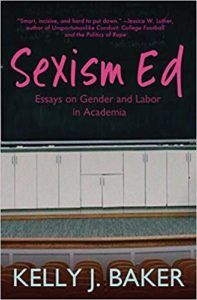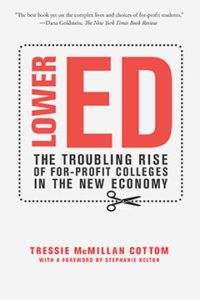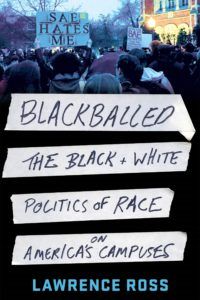But despite its complexity, understanding higher education is absolutely crucial for making sense of many political, social, and economic trends in the country and around the world. Higher ed is constantly in the news, whether it’s because of the latest “free speech” firestorm, a new tuition-free-college plan, a race-based-admissions lawsuit, or the terrifying fact that Americans owe more than $1.5 trillion in student loan debt. As we head into a new presidential primary (god help us), and as we’re always at some point in the endless applying-and-choosing-a-college cycle, it pays to get to the bottom of what’s going on. And you really can’t really understand trigger warnings, affirmative action, or student debt without first making sense of how race, gender, disability, and class shape higher education and the way students move—or don’t—through it.
So whether you’re considering college or grad school, parenting or mentoring someone who is, or just want a clearer understanding of one of the things politicians fight about, check out this short reading list of books about higher education. Start with these, and you’ll be on your way to understanding how intersections of race, class, gender, and disability shape both student experience and the larger political stakes of college in America.
Sexism Ed: Essays on Gender and Labor in Academia by Kelly J. Baker
Lower Ed: The Troubling Rise of For-Profit Colleges in the New Economy by Tressie McMillan Cottom
Did you know that the president of the United States of America owned an exploitative for-profit “university“? Have you seen those heartstring-pulling University of Phoenix ads (featuring Maya Angelou?!) on television? What’s the deal with all of that? For-profit higher education is probably the fastest-growing and least-understood segments of higher education today, and Cottom is working hard to change that. With an iconic Twitter presence, spots on The Daily Show, and this already-classic book, Cottom has become the foremost expert in how for-profit colleges expand, why people attend them, and what they cost their students and the country. Extra Credit: Gabriella Gutiérrez y Muhs, Yolanda Flores Niemann, Carmen G. González and Angela P. Harris’s Presumed Incompetent: The Intersections of Race and Class for Women in Academia Extra Credit: Sara Goldrick-Rab’s Paying the Price: College Costs, Financial Aid, and the Betrayal of the American Dream.
Trans* in College: Transgender Students’ Strategies for Navigating Campus Life and the Institutional Politics of Inclusion by Z. Nicolazzo
In the ginned-up backlash to efforts at making college campuses more inclusive, transgender and nonbinary students (especially trans and enby students of color) often pay a heavy price. But trans students are also resilient, shaping their own lives and their campuses in positive and transformative ways. Resilience within oppressive institutions is the focus of Trans* in College. Like most of the books on this list (for good reason!), this one is inextricably personal and political. Grounded in extensive research in the field and her own experience of being trans in higher ed, Nicolazzo makes a crucial contribution to the project of understanding how universities work to exclude and include. If this book inspires you to learn more, check out Nicolazzo’s Trans Studies in Higher Education syllabus for more reading suggestions. Extra Credit: Genny Beemyn’s Trans People in Higher Education (February 1, SUNY Press) Extra Credit: Margaret Price’s Mad at School: Rhetorics of Mental Disability and Academic Life Extra Credit: Megan M. Holland’s Divergent Paths to College: Race, Class, and Inequality in High Schools





